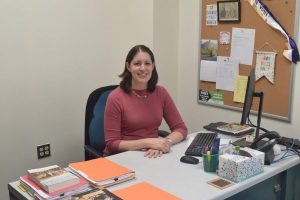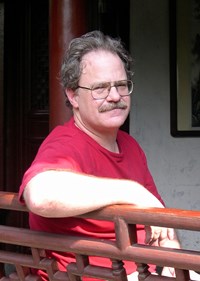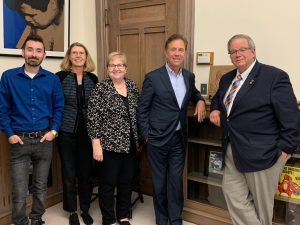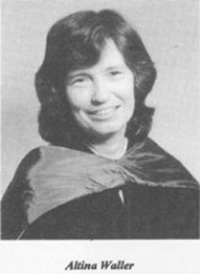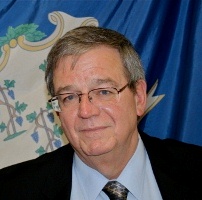Although she is missed in Wood Hall, the UConn History Department is happy to share that Dr. Amy Sopcak-Joseph, who defended her dissertation in the spring of 2019, has settled well into her new home in the Global Cultures Department of Wilkes-Barre University. On September 24th, an interview with Professor Sopcak-Joseph was published in Wilkes-Barre’s The Beacon. To read about her first semester experience thus far, please click here.
Month: September 2019
Prof. Alexis Dudden Contributes Article to NYT
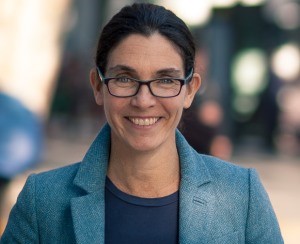 On September 23rd, Professor Alexis Dudden published an op-ed, titled “America’s Secret History in East Asia,” in the New York Times. The article explores the history behind the history of the trade disputes between South Korean and Japanese officials and places blame in the hands of U.S. diplomats. Professor Dudden writes: “Neither South Korean nor Japanese officials point a finger at the United States for their dispute, and yet they should…the historical moment they are fighting about, more than a half-century later, was fundamentally shaped by America’s involvement. Even as it claimed to help resolve Japan’s and South Korea’s longstanding grievances with the 1965 treaty, Washington used one ally over the other out of expedience, to advance its own interests.”
On September 23rd, Professor Alexis Dudden published an op-ed, titled “America’s Secret History in East Asia,” in the New York Times. The article explores the history behind the history of the trade disputes between South Korean and Japanese officials and places blame in the hands of U.S. diplomats. Professor Dudden writes: “Neither South Korean nor Japanese officials point a finger at the United States for their dispute, and yet they should…the historical moment they are fighting about, more than a half-century later, was fundamentally shaped by America’s involvement. Even as it claimed to help resolve Japan’s and South Korea’s longstanding grievances with the 1965 treaty, Washington used one ally over the other out of expedience, to advance its own interests.”
To read more about the ongoing trade dispute and Washington’s past involvement, click here.
UConn Conference: Key Texts in Modern Chinese Political Thought
This Friday and Saturday, September 27-28, UConn-Hartford will be hosting the “Key Texts in Modern Chinese Political Thought: Late Qing to Republican China” conference.
The conference focuses on selected “key texts” in Chinese political thought from roughly the first half of the twentieth century. Conference papers will analyze texts in terms of their sources and argumentation, their position in the discursive field, and their contribution to political theory. The conference as a whole asks what counts as political theory, what political theorists might learn from China, and how to construct a larger list of key texts from China.
Alongside Thomas Fröhlich (Universität Hamburg), Professor Peter Zarrow (UConn) has organized the conference. The conference is co-sponsored by the Chiang Ching-kuo Foundation and the University of Connecticut.
All are invited to attend, but space is limited, so registration is required, and the conference organizers will get back to you. The registration webpage also links to the conference program. Registration and program can be found here.
Prof. Woodward Interviews CT Governor Ned Lamont
Professor and State Historian Walt Woodward joined Mary Donohue in interviewing Governor Ned Lamont for Woodward’s podcast, Grating the Nutmeg. In addition to sharing Lamont’s speech, “100 Years of Fake News and Fake and Real Wars,” the podcast also includes a discussion with the Governor regarding the importance of the liberal arts and history. To stream the episode, go to this link or search for Grating the Nutmeg on your preferred podcast app.
Prof. Sinha Publishes Essay in Wall Street Journal
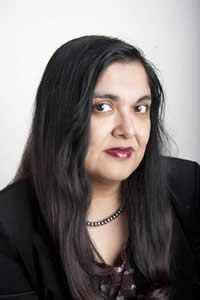 On Saturday, September 21st, Professor Manisha Sinha contributed a Saturday Essay to the Wall Street Journal titled “The Long History of American Slavery Reparations”. The article considers “the bitter legacy of bondage and racial oppression [that] has sparked demands for compensation”. To read online, please click here.
On Saturday, September 21st, Professor Manisha Sinha contributed a Saturday Essay to the Wall Street Journal titled “The Long History of American Slavery Reparations”. The article considers “the bitter legacy of bondage and racial oppression [that] has sparked demands for compensation”. To read online, please click here.
Q&A: American Girl, NYT, and Mahoney and Horrocks’ Podcast Success
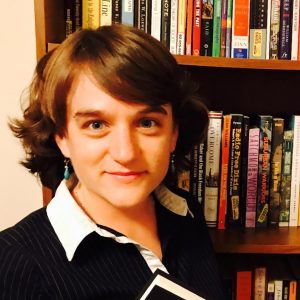
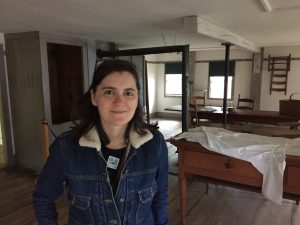
Ph.D. graduates Allison Horrocks and Mary Mahoney are taking the podcast world by storm! In addition to Horrocks’ job as a park ranger and public historian with the National Parks Service, and Mahoney’s position as a Postdoctoral Fellow in Digital Humanities at Trinity College, the UConn alums host American Girls that explores American Girl fandom, pop culture, and U.S. history. The podcast has attracted over 100,000 listeners – including NYT columnist, Margaret Lyons, who recently lauded the podcast.
To learn more about the podcast and this impressive duo’s experience thus far, check out the Q&A below!
How did this podcast come to be? Not only regarding your engagement with the American Girl world during your childhoods (which you frequently and hilariously share on the podcast), but the actual decision to make a podcast.
AH: We have wanted to do a podcast on American Girl for years. A shared interest in the “OG” American Girls was also one of the first things Mary and I discussed when we became colleagues at UConn. Starting in 2017, we workshopped ideas for this kind of show in a variety of ways before it actually debuted in 2019. Notably, Mary has the technical skills and had already created a few podcasts and digital media projects before this one. But we knew that the timing had to be right. We both needed to be done with our graduate studies, settled into our respective jobs, and able to give the amount of time this project would require each week.
MM: My grandmother bought me books for Christmas when I was growing up. I remember obsessing over each series and the magazine, but not being overly invested in the dolls or material culture of American Girl. Once I aged out of it, I promptly forgot every single plot line of these books while also maintaining it was foundational to my early interest in history. When Allison and I met at UConn, we bonded over our shared love for the series and wondered if it had a similar impact on other readers our age.
The choice to make a podcast came partly from my interest in that format. I developed a serious interest in audio production and storytelling while a student at UConn where I obtained training at the community radio station (an opportunity I highly recommend to all interested), and created and produced a podcast called Chapters. One of the great assets of podcasts are that they are so accessible – anyone can make one if they have access to an internet connection. I grew up making zines, so it seemed like a natural transition for me to seek out a way to incorporate many different voices into a form that could be easily and freely distributed. Because American Girl is a brand that self-consciously curates presentations of girlhood, this format also seemed to lend itself to our subject and has let us incorporate many voices in addition to our own.
Could you please share what was your original goal in making the podcast? Has that goal (or goals) changed with the podcast’s increasing popularity, such as a receiving a wonderful NYT review, and/or potential feedback from your audience?
AH: We do this show partially with reverence for what the series did for us as young people. Yet we also take a critical stance on the worlds created in the books. One of my goals is to share my love of history and historical studies with a wide audience.
We receive messages of some kind every single day. Truly, whenever I open up one of our social media apps, I have a new story from someone who listens. That’s the best part of doing this, other than sharing the small successes we’ve had with my best friend.
MM: I think one of our original goals was to present a conversation about books that are meaningful to us in a format that reflects our friendship and how we think about history. This is a show that asks listeners to think with history – both the history of the time periods in which the books are set and the decades (1980s, 1990s) of their original publication. The fact that we present a way of doing history that is not at all reliant on trivia, is something that has resonated with listeners who had only a passing interest in the subject.
These are books that meant something to us in childhood, and our format preserves an essential part of childhood – specifically, play. My personal goal for this show is to have fun and hang out with my best friend. I could never have predicted the response we’ve received. When we started the show, we thought we’d be recording a conversation we’d be having anyway to share with a handful of friends. Now that we’ve had over 100,000 listeners, our approach has remained the same.
How do you balance the historical details with the pop culture references while also staying on topic for the hardcore AG fans?
AH: I think the combination of pop culture and historical content is reflective of our friendship. This show is authentic to our dynamic and reflects how we really talk. If we tried too hard to plan every bit of the conversation, it would be a really different show. It’s not scripted.
MM: How we sound on air is how we sound off air, and unlike most reality shows, we are not scripted.
How would you describe this project in terms of historical categories, such as public history, digital history, material history, etc.?
AH: I consider myself squarely in the world of public history. Lots of people have reached out to us about articles or books that we mention on the show. I know that for a few people, this has been a way to learn about a topic in a deeper way that they had only been introduced to in a high school or college level history class. That’s been really rewarding to hear. Ultimately, though, this podcast is a form of entertainment.
In one of the early episodes, you mention a discussion that occurred with a professor over the historical context surrounding Felicity. Was this a UConn professor? How has your experience at UConn impacted the way you analyze these stories as well as present them on the podcast?
AH: We plead the fifth on who the professor was in that story!
We would not be able to do a lot of the work that goes into this podcast without our graduate training. UConn is also where we became friends. We had known each other before UConn (we attended the same college) but not very well.
MM: **reenacts Felicity overturning her teacup to reject tea in protest of British tea tax** “I shall spill no tea.”
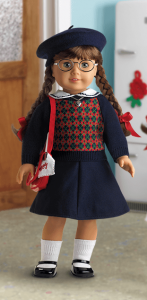
Finally, which American Girl would have been most likely to declare a History Major in college?
AH: Molly, obviously.
MM: I don’t remember any of the plot lines, but am confident saying all roads lead to Molly.
Scarminach Shares History of Seabed Mining in Edge Effects
 UConn Ph.D. Candidate Shaine Scarminach recently contributed to Edge Effects, a digital magazine associated with the Center for Culture, History, and Environment (CHE) at the University of Wisconsin-Madison. His article, titled “Diving into the History of Seabed Mining” takes a critical look at seabed mining by historicizing the practice and questioning the industry’s current claims. Scarminach aptly raises the questions: “Can seabed mining help reduce economic inequality in the world, or will it merely open another frontier of resource extraction? Can the practice be safely pursued, or will it necessarily harm marine ecosystems already impacted by global warming, overfishing, and pollution? Can hauling minerals from the sea floor help communities adapt to climate change, or will it only create further obstacles?”
UConn Ph.D. Candidate Shaine Scarminach recently contributed to Edge Effects, a digital magazine associated with the Center for Culture, History, and Environment (CHE) at the University of Wisconsin-Madison. His article, titled “Diving into the History of Seabed Mining” takes a critical look at seabed mining by historicizing the practice and questioning the industry’s current claims. Scarminach aptly raises the questions: “Can seabed mining help reduce economic inequality in the world, or will it merely open another frontier of resource extraction? Can the practice be safely pursued, or will it necessarily harm marine ecosystems already impacted by global warming, overfishing, and pollution? Can hauling minerals from the sea floor help communities adapt to climate change, or will it only create further obstacles?”
Scarminach’s dissertation research explores changes in the human use of the oceans, particularly during the Cold War and decolonization. For more information regarding Shaine’s work, please click here.
Two History Professors Featured in UConn 360 Podcast
This week’s episode of UConn 360 features state historian and Professor Walter Woodward, as well as Professor Altina Waller. While Professor Woodward provides fascinating facts about Connecticut’s history, Professor Waller discusses the Hatfield-McCoy feud, which served as the subject of her third book. To listen to the podcast, click here. To read more about Professor Waller’s book, “Feud: Hatfields, McCoys and Social Change in Appalachia, 1860-1900,” click here.
Wood Hall Welcomes Two South African Visiting Fellows
The History Department is pleased to welcome Thoko Sipungu and Siyanda Ntlabathi who join us through the University Capacity Development Program (UCDP), a South African initiative with international partners in higher education that helps to develop the professoriate. In a parternship with UCONN Global and South Africa’s
Department of Higher Education and Training (DHET), the UConn History Department welcomes the second cohort or scholars in this exciting collaboration. We wish them a productive start to their semester at UCONN!
Thoko Sipungu, Visiting PhD Scholar, Rhodes University, South Africa 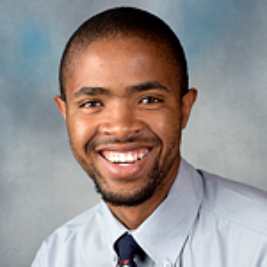
Sipungu is a lecturer in the Department of Sociology at Rhodes University. His research and teaching interests include the sociology of men and masculinities, sexuality/ies, disabilities, identity and belonging, and sociological theory. His research aims to theorize the significance of the ‘body’ and the place of disability in the construction of Xhosa masculinity/ies.
Siyanda Ntlabathi, Visiting PhD Scholar, University of Fort Hare, Eastern Cape, in South Africa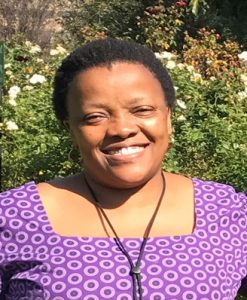
Siyanda works as Manager of the Teaching and Learning Centre, East London Campus at the University of Fort Hare. Her work involves Leadership, supporting Academics in Technology Enhanced Learning, Curriculum Development, Portfolio and ePortfolios development and Foundation Provisioning (Extended Curriculum) Support. This entails development and support through workshops, seminars, and one on one consultations. Siyanda has a Master’s in Education and is currently pursuing her PhD (DBA in Higher Education Management) with the University of Bath.
Nathan Braccio’s Fellowship with Omohundro Institute
Ph.D. candidate Nathan Braccio was named an Omohundro Institute–Jamestown Rediscovery Foundation fellow, which enabled Braccio to conduct research over the summer in Williamsburg and Jamestown. While Braccio’s dissertation, “Parallel Landscapes: Algonquian and English Spatial Epistemologies 1500-1700,” focuses on how New England colonists and Algonquians described and learned about their landscape before 1700, his fellowship enabled him to broaden his research to include the culture of professional surveying and mapmaking among early colonists.
Braccio shared his fellowship experience and details relating to his fascinating research on OI’s “Uncommon Sense” blog. A link to his post can be found here.
